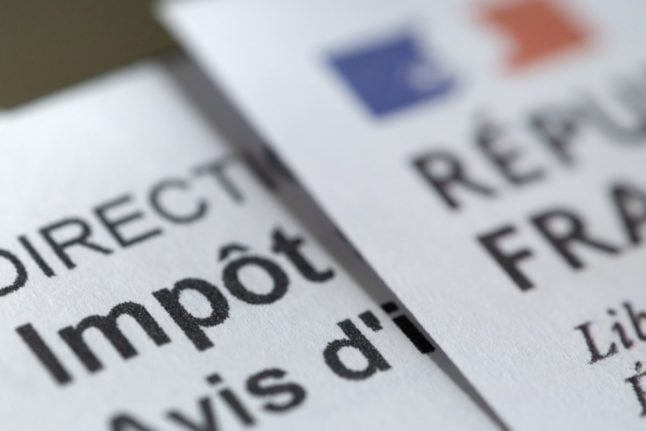If you’re buying property in France – whether you intend to live in it, use it as a second home or rent it out – then you will be entering the wonderful world of French property taxes. Here’s how it all works.
Overview
France’s property tax system has undergone a fairly major shake-up in recent years, so you need to make sure that you’re looking at up-to-date information.
There is now a new requirement – the property tax declaration or déclaration d’occupation (more on that later) – and a big change in who actually pays property tax.
Taxe foncière is the property-owners’ tax, paid by everyone who owns property in France, including those who live in another country. This system has not changed, but many people have seen big increases in their bills in recent years.
Taxe d’habitation used to be the householders’ tax, paid by whoever occupied the property. This meant that tenants paid only taxe d’habitation while people who owned their own home (plus second-home owners) paid both. However in a radical shakeup, taxe d’habitation has now been gradually phased out for everyone apart from second home owners.
This means that tenants now pay no property tax at all, owner-occupiers pay only taxe foncière while only second-home owners still pay both.
The redevance audiovisuelle or TV licence wasn’t actually a property tax, but it was traditionally sent out with property tax bills in the autumn. However it was scrapped for everyone in 2022.
Property tax declaration
This is a new requirement brought in in 2023 and requires everyone who owns property in France – including second-home owners who live in another country – to complete a form known as the déclaration d’occupation.
This form lists the details of your property such as size and number of rooms and what it is used for – a main residence, a second home or rented out as a long or short-term let.
This information is then used to calculate your property tax bills.
The form does not need to be completed every year, only when your situation changes – eg you have bought or sold a property or you have changed its use (eg your second home has become your main residence).
Find full details on how to fill out the form HERE.
Property tax bills
Bills for property tax arrive in the autumn, first taxe foncière (usually in September or October) and then – if applicable – taxe d’habitation, usually in November.
The calculations are based on the situation on January 1st of that year – so most people won’t pay property taxes for their first year of property ownership, but will receive a final bill after they have sold their property.
For most people the simplest way to deal with them is to declare and pay online via the government tax portal impots.gouv.fr. However it is possible to use the paper-based system if you either do not have access to the internet or do not feel confident using internet-based services.
READ ALSO How to get a numéro fiscal and create a French tax account
How much are the bills?
This is one of those ‘how long is a piece of string’ questions because there are a lot of variables.
Taxe foncière is calculated according to a complicated formula based on the rentable value of your property, the national tax rate and the local tax rate. The national government can decide to increase property taxes, usually in line with inflation, but local authorities can also set their own tax rate and are given significant leeway in how much they charge.
This year the national government has decided to increase the rate by 3.9 percent while local authorities are voting on their own increases (or decreases in a couple of cases).
Because the bill is partly calculated according to the rentable value of your property, making significant changes that would increase the value – eg building an extension or adding a swimming pool – can also result in a higher bill.
Taxe d’habitation is also based on the rentable value of your property plus local and national tax rates – but the rates can be different to those applied for taxe foncière. If your property is in an area that has a housing shortage (and remember that taxe d’habitation is only charged on second homes), local authorities can impose a surcharge, and use that money to create more housing for local people.
Where in France imposes a surtax on second homes?
To give you a rough idea, here are the average bills for 2023.
Can you challenge your tax bill?
If you think your property tax bills are too high then you can challenge them, but only in specific areas.
Basically you cannot contest either the local or national tax rate, but you can contest the rentable value (valeur locative) assigned to your property, which is intended as an estimate of how much you would get if you rented out your property.
First check the details that are listed on your property tax declaration, since these are used to calculate your bill. A few square metres here or here in the size of the property won’t make much difference but anything significant – eg they think you have 25 bedrooms but actually you have two – you should correct and update on the declaration.
If the details are correct but you still think the rentable value is unrealistic based on the local market, you can challenge it – here’s how.
A few other odds and ends
Building tax – There are a couple of other tax-related things that you need to know, including the ‘building tax’ – if you are doing a significant building project such as adding an extension or outbuilding then you may be liable for the one-off taxe d’aménagement, sometimes known as the ‘garden shed tax’. Full details here.
Swimming pools – If you’re adding a swimming pool, or if your property already had a pool which is not listed on your property tax declaration, then you need to declare it to tax authorities. Many people try to get away with not declaring pools but the French tax man is now using aerial maps such as Google maps to spot undeclared pools – a recent sweep along the Côte d’Azur found 3,000 undeclared pools. Find full details here
Outbuildings – if your property has outbuildings such as an old barn, a shed or a swimming pool, these will be listed separately on your property tax declaration. This is normal.
Uninhabitable – if you have bought your property as a renovation project and it needs a lot of work, you may be able to declare it inhabitable (uninhabitable), which gives you a tax holiday. This isn’t just for properties that need a bit of redecoration but if your place has no running water, electricity, bathroom facilities or it is structurally unsound then you can declare it uninhabitable for up to two years while you renovate it. This results in paying either a lower rate of tax or no tax at all, depending on your commune’s rules.
Renting – if you want to rent out your property, you need to be aware of the rules in place for doing so. Whether you’re renting it out on a long-term lease of renting it as a holiday let (for example on Airbnb) you may need to register with local authorities and you’ll certainly need to declare the rental income to French tax authorities – full details here.
Get help
If you’re confused about the system, there are places you can go to get help.
The first is your local tax office, which you can go to on a walk-in basis and ask to speak to someone who can help you. Be aware that some smaller offices don’t deal with property tax queries, so they may refer you to the nearest big town – full details on how and when to contact your local office here.
There is also a telephone helpline – full details HERE.
If you’re still stuck, you might consider getting professional help – here’s how to find English-speaking accountants in France.



 Please whitelist us to continue reading.
Please whitelist us to continue reading.
Member comments